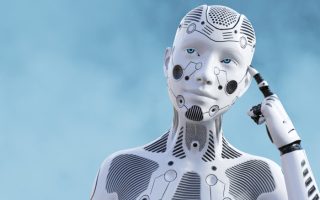Today, we’re diving into the fascinating world of book-to-screen adaptations and exploring how artificial intelligence, particularly ChatGPT, is revolutionizing this process.
If you’ve ever wondered how your favourite novels make the transition to the silver screen, or if you’re interested in the intersection of literature and AI, you’re in for a treat!
Lights, Camera, Adaptation!
Adapting novels into movies or TV shows is an age-old tradition in the entertainment industry. The allure of seeing beloved characters, gripping storylines, and captivating settings come to life is simply irresistible.
Yet, this process is no walk in the park. Transforming a novel into a visual medium requires creative genius, careful decision-making, and artistic finesse.
Traditionally, book-to-screen adaptations relied heavily on the expertise of screenwriters, directors, and producers to capture the essence of the source material. The goal was to maintain fidelity to the original work while catering to the different demands and constraints of visual storytelling.
However, in recent years, the rise of artificial intelligence has opened up new possibilities for this age-old practice. One such groundbreaking AI model is ChatGPT, developed by OpenAI. This language model has been designed to generate human-like text, answer questions, and assist in various creative endeavours.
ChatGPT: The Creative Sidekick.
ChatGPT has proven to be an invaluable tool for writers, content creators, and even filmmakers. Its natural language processing capabilities enable it to understand context, follow instructions, and generate coherent, contextually relevant text. But how does this translate to adapting novels for the screen?
When it comes to book-to-screen adaptations, ChatGPT serves as a versatile creative sidekick. Here are some ways in which it contributes to the process:
1. Ideation and Brainstorming.
Before a single frame is shot, countless ideas are tossed around by the creative team. ChatGPT can be invited to these brainstorming sessions to provide fresh perspectives and generate novel concepts. Its ability to understand the essence of a story and its characters can lead to breakthroughs that might have eluded human minds.
2. Character Development.
Compelling characters are the heart of any great story. When adapting a novel, staying true to the characters’ personalities, motivations, and growth arcs is crucial. ChatGPT can analyze the source material, delve into the characters’ nuances, and suggest ways to translate them seamlessly onto the screen.
3. Dialogue Refinement.
Snappy, memorable dialogue is a hallmark of remarkable movies. With ChatGPT’s language expertise, screenwriters can fine-tune the lines spoken by the characters. Whether it’s adding a touch of humor or heightening the emotional impact, ChatGPT offers valuable insights.
4. Streamlining the Plot.
Books often contain subplots and intricacies that might not entirely fit into a two-hour movie. ChatGPT can help identify the core elements that drive the narrative and suggest modifications to maintain a coherent storyline.
5. Visualizing Settings and Scenes.
Descriptive prose in a novel lays the foundation for the reader’s imagination. When adapting to the screen, capturing the essence of the settings and scenes is paramount. ChatGPT can collaborate with the production design team to translate vivid descriptions from the pages into breathtaking visuals on the screen.
The Pros and Cons of AI-Driven Adaptations.
As with any groundbreaking technology, AI-driven book-to-screen adaptations come with their own set of advantages and challenges.
Pros:
- Efficiency: ChatGPT’s lightning-fast processing enables quicker idea generation and decision-making during pre-production.
- Innovation: AI brings a fresh perspective to the creative process, leading to inventive adaptations that might not have been conceived traditionally.
- Consistency: ChatGPT’s understanding of the source material ensures a more consistent adaptation throughout the project.
- Time-Saving: With ChatGPT handling some creative aspects, human creators have more time to focus on other crucial elements of the adaptation.
Cons:
- Lack of Emotional Understanding: While ChatGPT can analyze and generate text, it lacks human emotions and might not fully comprehend the deep emotional nuances of a story.
- Over-reliance on AI: Relying too heavily on AI might stifle the unique creativity and intuition that human creators bring to the table.
- Ethical Concerns: The role of AI in creative endeavours raises questions about authorship, intellectual property, and potential biases in storytelling.
The Future of AI in Adaptations.
AI technology, including ChatGPT, is continuously evolving. As it becomes more sophisticated, we can expect even more profound contributions to the world of book-to-screen adaptations.
In the near future, we might witness AI algorithms collaborating with human creators on an unprecedented scale. The blending of human imagination and AI-driven efficiency could result in adaptations that astound audiences while staying true to the essence of the original novels.
As AI becomes more accessible, diverse stories from authors worldwide might receive the attention they deserve. Adapting novels from various cultures and perspectives can lead to a richer, more inclusive cinematic experience.
Conclusion.
In the grand scheme of things, the marriage of AI and creativity has just begun, and its potential in book-to-screen adaptations is promising.
As technology continues to advance, filmmakers, writers, and AI models like ChatGPT will work hand in hand to bring captivating stories from the pages of books to the dazzling world of the silver screen.
So, the next time you’re at the movies and find yourself mesmerized by an adaptation, take a moment to appreciate the collaborative efforts of human ingenuity and artificial intelligence that made it possible. It’s a new frontier, and we’re all eager to see what the future holds!
Remember, the magic of storytelling remains at the heart of every great adaptation, no matter who or what is assisting the process.




